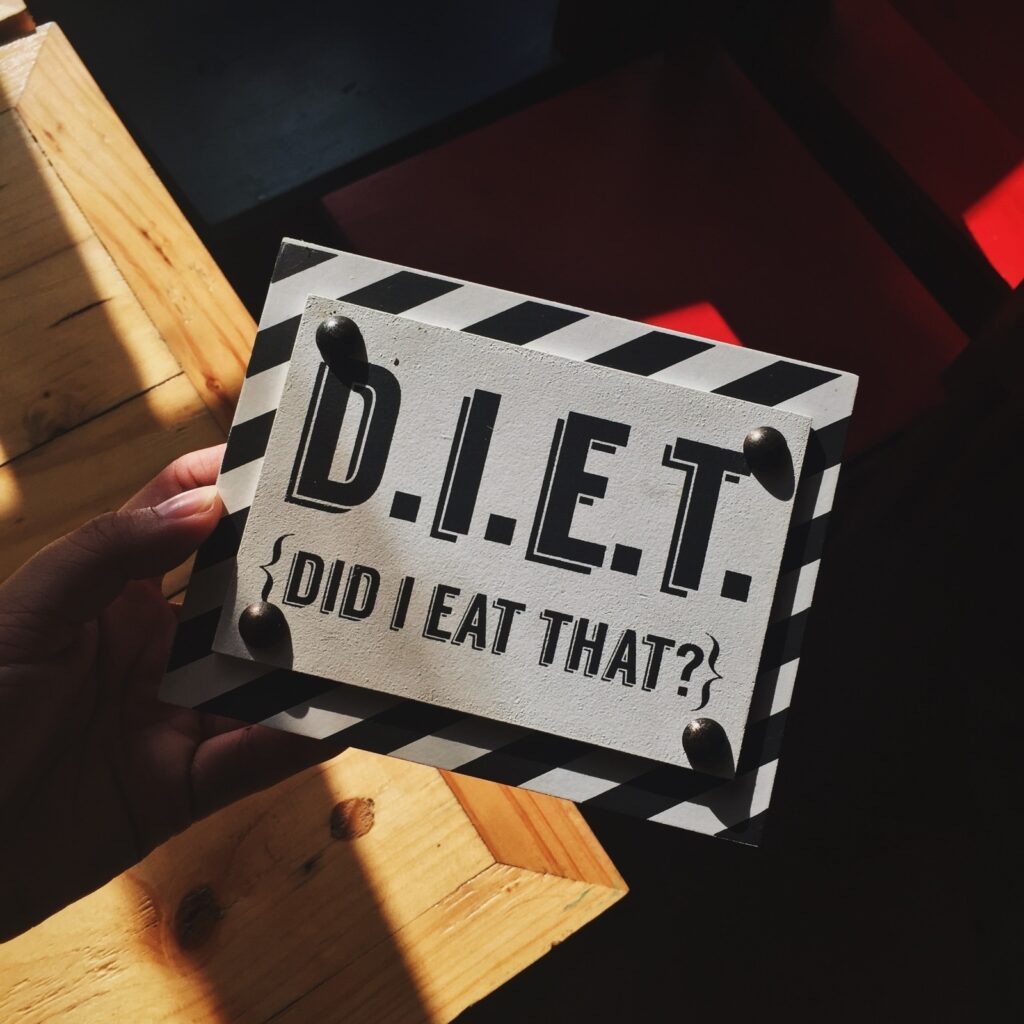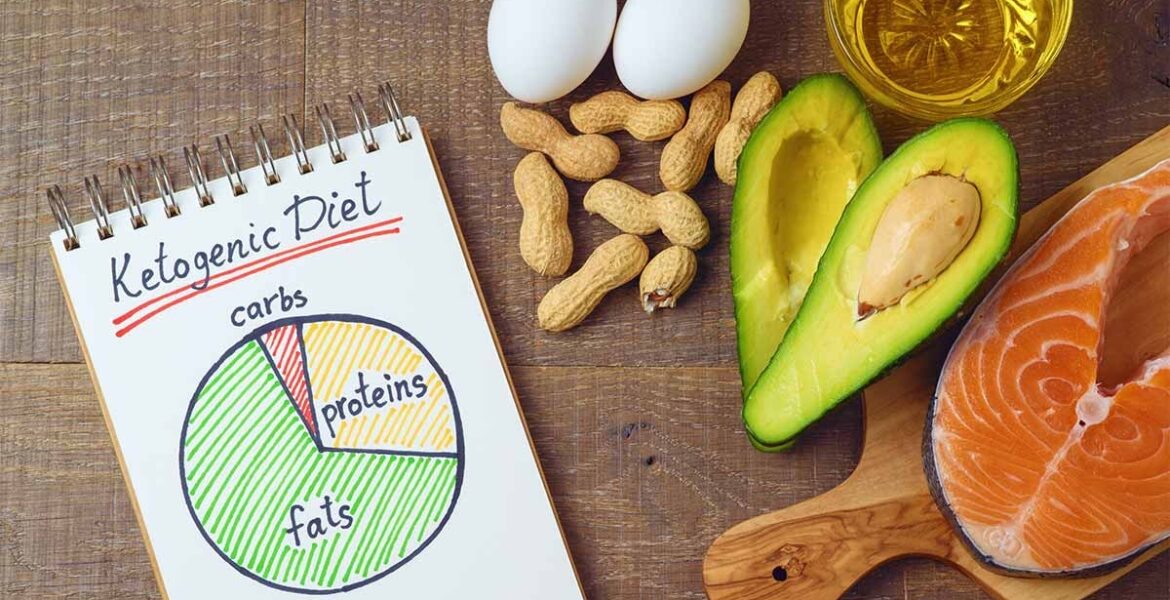Chances are you've got a friend or family member who swears by KETO, or if you haven't, then you've almost certainly heard of the myriad of celebrities who follow the diet religiously.
KETO has become more than a diet nowadays, it’s a way of life. Many restaurants offer extensive keto options on their menus, with Skinnys Bar and Grill in Bondi being Australia's first KETO CAFE! Everything on their menu is low-carb, gluten-free and sugar-free. Sounds good, right?
Well before you hop in your car and make the mad dash to Bondi to grab a 'carb-free' cheeseburger, let us see if the KETO hype stands up to science.

So, what is KETO? KETO stands for ketogenic. A ketogenic diet involves consuming as little carbs as possible, so the body is forced to enter a state of being called 'ketosis'. Essentially, this means that it burns the body's fat stores rather than the carbohydrates a human consumes on a daily basis.
Doctor Marcelo Campos from Harvard Medical School explains it like this: “Most cells prefer to use blood sugar, which comes from carbohydrates, as the body’s main source of energy. In the absence of circulating blood sugar from food, we start breaking down stored fat into molecules called ketone bodies (the process is called ketosis).
“Once you reach ketosis, most cells will use ketone bodies to generate energy until we start eating carbohydrates again. The shift, from using circulating glucose to breaking down stored fat as a source of energy, usually happens over two to four days of eating fewer than 20 to 50 grams of carbohydrates per day.
“Keep in mind that this is a highly individualized process, and some people need a more restricted diet to start producing enough ketones.
“Because it lacks carbohydrates, a ketogenic diet is rich in proteins and fats. It typically includes plenty of meats, eggs, processed meats, sausages, cheeses, fish, nuts, butter, oils, seeds, and fibrous vegetables.

Because it is so restrictive, it is really hard to follow over the long run. Carbohydrates normally account for at least 50% of the typical American diet.
“One of the main criticisms of this diet is that many people tend to eat too much protein and poor-quality fats from processed foods, with very few fruits and vegetables. Patients with kidney disease need to be cautious because this diet could worsen their condition.
“Additionally, some patients may feel a little tired in the beginning, while some may have bad breath, nausea, vomiting, constipation, and sleep problems.”
Despite the recent hype, the ketogenic diet is not something new. In medicine, it has been used for almost 100 years to treat drug-resistant epilepsy, especially in children.
In the 1970s, Dr. Atkins popularized his very-low-carbohydrate diet for weight loss that began with a very strict two-week ketogenic phase. This is where the KETO craze all began, and over the years, other fad diets incorporated a similar approach for weight loss.

Now that we know what the ketogenic diet involves, let's look at how safe it is for humans to follow.
According to Doctor Campos, “We have solid evidence showing that a ketogenic diet reduces seizures in children, sometimes as effectively as medication. Because of these neuroprotective effects, questions have been raised about the possible benefits for other brain disorders such as Parkinson’s, Alzheimer’s, multiple sclerosis, sleep disorders, autism, and even brain cancer.
However, there are no human studies to support recommending ketosis to treat these conditions.”
According to the world's leading low-carb diet blogger and podcaster Jimmy Moore, author of 'Keto Clarity', the ketogenic diet seems to be quite beneficial for effectively treating a range of other health conditions, including metabolic syndrome, polycystic ovarian syndrome (PCOS), irritable bowel syndrome (IBS), heartburn (GERD) nonalcoholic fatty liver disease (NAFLD), Type 2 diabetes, obesity and cardiovascular disease.
On the subject of Type 2 diabetes, Halle Berry began speaking out in support of the keto diet in 2017. She explained in an appearance on Live With Kelly and Ryan that she’s a good candidate for the diet because she’s diabetic.
Halle also spoke to People about KETO. “I eat healthy fats all day long, avocado, oil, coconut oil and I use butter, but don’t have any sugar. So when your body gets trained to burn fats, it’s constantly on fat-burning mode — that’s the secret,” she noted.
A ketogenic diet also has been shown to improve blood sugar control for patients with type 2 diabetes, at least in the short term. However, there is a lot of controversies when doctors have considered the effects of KETO on cholesterol levels.
A few studies show some patients have an increase in cholesterol levels, in the beginning, only to see cholesterol fall a few months later. However, there is no long-term research analyzing its effects over time on diabetes and high cholesterol, at least as of now.
Back to Ms. Bond for a minute. Berry is just one of many celebs who swear by the KETO diet to help them combat health conditions naturally, with others who seemingly swear by the diet for staying slim and trim.

It would seem weight loss is the primary reason many people use the ketogenic diet. Previous research shows good evidence of faster weight loss when patients go on a ketogenic or very low carbohydrate diet compared to participants on a more traditional low-fat diet, or even a Mediterranean diet.
However, that difference in weight loss seems to disappear over time, as the KETO way of living is hard to keep up long term. And this is where we hit a crossroads.
If you want to lose weight, the fastest route to drop the kilos is often taken, without much consideration on long term effects or any advice taken from a doctor or dietician on 'proper eating'.
KETO is often promised to 'get you slim quicker', as low-carb diets are famous for quick fat loss. The person will often lose a considerable amount of weight on KETO, then afterwards, go back to their 'normal' way of eating. The weight slowly comes back and, then we go diet again; usually even more restrictedly than the first time. It is often much harder to lose the second time on a diet, and each time we restrict our bodies heavily, our metabolisms are put under a lot of stress. This process is called 'yo-yo' dieting and can be harmful long term.
Studies have shown that most people who participate in the KETO diet, end up gaining the weight back faster than those who follow other restrictive diets. Why is that? Firstly, metabolic needs are largely based on body composition. Muscle uses more energy than fat, thus higher muscle mass means higher caloric needs.
Leading Dietician and Nutritionist Emily Baum explains KETO ‘yo-yo’ dieting like this:
‘Quick weight loss often means losing muscle mass, not just fat loss. Most, if not ALL Fad diets are typically unsustainable so that when the “diet is over”, your body composition is now completely different to before. You now have less muscle, which means you now have to consume fewer calories than before the diet to maintain your new weight. People then resume their “normal” eating patterns and gain weight very quickly. This causes people to blame “carbs” or whatever food group they eliminated. When in reality, you changed your body composition, thus your caloric needs have changed’. This is where KETO can potentially become dangerous.
So, is it eliminating carbohydrates the key?
It would seem that the KETO Diet is unsustainable long term; therefore, there are no long-term studies supporting that a keto diet is “healthy”, in particular for losing weight or decreasing morbidity rates.
So what can we take away from all this?
If you don't have a pre-existing health condition, (mentioned above), or haven't been advised to eat KETO by a Doctor, Specialist or Dietician, perhaps following a traditional Mediterranean diet is the answer to optimal health, longevity and weight loss that stays off.
This way of eating combines a good combination of healthy fats and healthy, complex carbs. By including a larger food group, this ensures cravings are kept at bay, all the while getting all the nutrients you need to feel satiable and happy.
So, what are you waiting for! Let's get to cooking those gemista (stuffed capsicums) and roast lamb with Greek salad. Happy healthy carb consuming!


